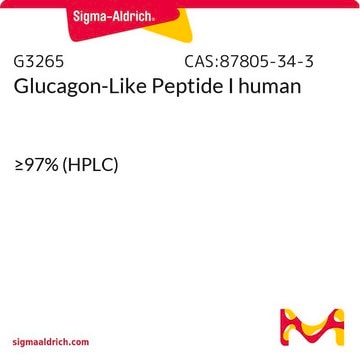Fontos dokumentumok
M0696
Anti-MNK2 (N-terminal) antibody produced in rabbit

~1.0 mg/mL, affinity isolated antibody, buffered aqueous solution
Szinonimák:
Anti-GPRK7, Anti-MAP kinase interacting serine/threonine kinase 2, Anti-MKNK2
About This Item
Javasolt termékek
biológiai forrás
rabbit
Minőségi szint
konjugátum
unconjugated
antitest forma
affinity isolated antibody
antitest terméktípus
primary antibodies
klón
polyclonal
form
buffered aqueous solution
molekulatömeg
antigen ~50 kDa
faj reaktivitás
rat (predicted), human, mouse (predicted)
fejlettebb validálás
recombinant expression
Learn more about Antibody Enhanced Validation
koncentráció
~1.0 mg/mL
technika/technikák
immunocytochemistry: 2-5 μg/mL using paraformadehyde fixed HEK-293T cells transfected with human MNK2
immunoprecipitation (IP): 2-4 μg using lysates of HEK-293T cells transfected with human MNK2
indirect immunofluorescence: suitable
western blot: 1-2 μg/mL using lysates of HEK-293T cells transfected with human MNK2
UniProt elérési szám
kiszállítva
dry ice
tárolási hőmérséklet
−20°C
célzott transzláció utáni módosítás
unmodified
Géninformáció
human ... MKNK2(2872)
mouse ... Mknk2(17347)
rat ... Mknk2(299618)
Általános leírás
Immunogen
Alkalmazás
Fizikai forma
Jogi nyilatkozat
Nem találja a megfelelő terméket?
Próbálja ki a Termékválasztó eszköz. eszközt
Tárolási osztály kódja
10 - Combustible liquids
Lobbanási pont (F)
Not applicable
Lobbanási pont (C)
Not applicable
Egyéni védőeszköz
Eyeshields, Gloves, multi-purpose combination respirator cartridge (US)
Analitikai tanúsítványok (COA)
Analitikai tanúsítványok (COA) keresése a termék sarzs-/tételszámának megadásával. A sarzs- és tételszámok a termék címkéjén találhatók, a „Lot” vagy „Batch” szavak után.
Már rendelkezik ezzel a termékkel?
Az Ön által nemrégiben megvásárolt termékekre vonatkozó dokumentumokat a Dokumentumtárban találja.
Tudóscsoportunk valamennyi kutatási területen rendelkezik tapasztalattal, beleértve az élettudományt, az anyagtudományt, a kémiai szintézist, a kromatográfiát, az analitikát és még sok más területet.
Lépjen kapcsolatba a szaktanácsadással







